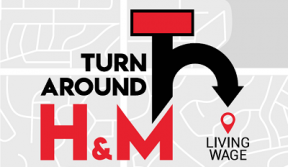PORTLAND (AP) - Employees at factories that make clothing and sneakers for companies such as Nike and Adidas are still forced to work excessive overtime and are being blocked from organizing into labor unions, according to a new report from a watchdog group.
The third annual audit of factories by the industry-funded Fair Labor Association showed that the number of violations rose to 18.2 per factory in 2004 from 15.1 a year earlier, though that change is partly due to revised monitoring methods.
The group monitors factories on behalf of member companies - which also include Nordstrom, Reebok, Eddie Bauer, Patagonia and others - to ensure compliance with health, safety, compensation and other standards.
The report was released this week as at least one anti-sweatshop group called for sweeping changes in how manufacturers work with factories.
United Students Against Sweatshops is urging manufacturers that make college-logo apparel to hire only those factories that allow union representation and prove they pay a "living wage'' to employees.
The new report tallied 1,603 violations at 88 factories, primarily in East Asia, Southeast Asia and Central and South America. Nearly 3,800 factories make products for Fair Labor Association member companies.
Health and safety violations comprised the largest category. Factories failed to post evacuation procedures, did not meet personal protection standards, and did not ensure sufficient ventilation, electrical or other factory maintenance among other problems.
Documented child labor violations most often involved false or incomplete documents, rather than the employment of youths younger than the legal age in factories, the report said.
Manufacturers that contract with the problem factories are expected to establish programs to bring them back into compliance.
Beaverton-based Nike, the world's largest sports apparel and footwear manufacturer, said the report's findings are consistent with the company's own conclusions.
Nike does put in place measures to fix violations once identified, said spokesman Alan Marks. But many of the problems require an industrywide solution. For example, multiple companies may use the same factory, creating problems for managing work schedules and limiting work hours, he said.

